Table of Contents
High School Science
It has been a busy and challenging term for the Grade 9 Biology students. The students have developed scientific process skills, laboratory techniques, and understanding of the fundamental principles of living organisms, including cell structure and function, ecosystems and communities, the biosphere, and populations. As a hands-on work, the students conducted an inquiry-based activity to determine the effect of temperature on the rate of an enzyme-catalyzed reaction. The students have started the next unit in photosynthesis.
In Grade 10 Chemistry, students are working on calculating light energies and learning where electrons in the atom are located. This is referred to as electron configuration. This picture shows a version of the board game Battleship where students practice using electron configuration to sink their classmates’ battleships. Don’t worry, we have since signed a peace agreement :).
AP Chemistry is in the process of finishing Unit 6 (out of nine total) on thermodynamics. They have been working hard calculating the enthalpy of reaction, entropy, free energy, the energy of phase changes, etc. Their mock AP exam will be held on April 5 at 9:00 am. We are back on track with the scheduling, and with additional review classes on Tuesday at lunch, we will be able to cover all topics before the exam in May. The next unit will be equilibrium!
Environmental Science students are currently working on a project tracking the lifespan of trash and other waste. They chose ten items to track and learned about their origin, transportation, time spent in use, how long it takes to biodegrade, and investigating the most sustainable ways to deal with trash.
They finished making a visual product that included flipbooks, posters, and even two websites. Next, they will be creating a game that we can play as a class! They are also responsible for keeping up with environmental news in the world, and they write weekly “Current Events” reporting on a relevant, current environmental topic.
The General Physics students have just finished the unit on momentum and collisions. This unit deals with the concepts of linear momentum and its relation to force. It also includes the concept of impulse and its manifestations in everyday life. One big idea in this unit is about the conservation of momentum and kinetic energy.
The students have learned the conditions in which momentum and kinetic energy are conserved. As a hands-on activity, the students utilized a computer simulation for collisions where they examined different scenarios when two objects collide. The students have started with the next unit in circular motion. They recently performed an inquiry-based activity to verify the equation of centripetal force.
In AP Biology, we impose rigorous tests to support the validity of results. One of these tests is Chi-square analysis. Students conducted an investigation to measure the effect of different concentrations of coffee on onion root tip growth. The goal of this lab was to learn how to use the Chi-square to analyze scientific data and also draw conclusions either to accept or reject the null hypothesis. Students are currently working on Gene expression and regulation (unit 6) and we are left with ecology and natural selection to complete the syllables. Their mock exam will be held on April 17, 2020, at 9:00 am.
High School Social Studies
9th Grade World History
There are many patterns in world history. Yet, there was one group which was an outlier. Which group was the one exception in World History? Which group was able to attack Russia in the winter and succeed? Which people were more egalitarian during a time of male domination? Which people were religiously tolerant during a time of religious intolerance? Which people played a hand in helping create modern China and modern Russia? If you guessed the Mongols, then you would be correct.
The 9th grade students have taken an indepth look at these fascinating people from the northern steppe who created the largest contiguous land empire in world history. The Mongol Empire went from Russia and parts of Eastern Europe to the Middle East, Central Asia, China, Vietnam, and Korea. They attempted to invade Java, Egypt, and Japan but were finally repulsed as the empire split into separate khanates. The 9th grade students have studied these fascinating people who were both cruel and kind. A people who destroyed and built at the same time.
AP World History: Modern
How do you study world history from 1200CE to modern times in one year? You do it quickly! The AP World History: Modern course is a rigorous class and the students are pushed to be focused week after week. Each Monday morning begins with a quiz over the reading which encourages the students to keep up with the weekly reading.
The past few weeks the students have been looking at Unit 6 which covers the consequences of industrialization from 1750 to 1900. Some of the topics the students have looked into are imperialism and state expansion, indigenous resistance to state expansion, economic imperialism, the causes and effects of migration. The next unit will take us to the 20th century and its many conflicts such as World War 1, World War 2, atrocities, and genocides.
AP Psychology
What motivates you? The AP Psychology students are looking into the psychology of motivation and its various aspects. As part of this unit, the students are looking at food as motivation. Have you ever been ‘hangry’? When you are so hungry that you are angry? The students are keeping a food journal and for 18 days they are writing down absolutely everything they eat or drink.
They are quickly realizing just how much food they consume and how food acts as a motivator. Students are also looking at emotions and the process by which we feel emotions and its impact on our brain. Finally, the students are looking at stress and the result of stress on our bodies. With really busy AP schedules, after school activities, and sports, these students know a thing or two about stress. Now they are learning some ways to manage it and deal with it properly.
Middle School Music
This semester is a big challenge for the eighth graders. They started this semester with a variety of ideas and changes in the composition of instrumentation. Most of the students want to learn to play a different musical instrument this year. In order to succeed, each student must be committed and dedicated to this new challenge. It will be important for the group to practice hard during the semester.
At the beginning of the year, the class discussed possible songs that would be performed in the upcoming concert. Many good ideas were shared in the brainstorming session. It was pleasing to see all the students actively participating in the discussion of the song selection. The chosen songs must be in accordance with the school culture and must also be doable for students. The selected songs are the result of voting conducted in class. Because the songs are chosen by the students, they are very enthusiastic to learn their music choices for the concert.
Currently, students in grade 8 are actively learning to play the songs they have chosen. The guitarists are busy with the right and left hand fingering and plucking techniques. The keyboardist and pianists are working on learning the rhythmic accompaniment of the songs. The drummers are learning the synchronizing of the right and left hand coordination with the right and left feet and the singers are busy learning the melody of the song as well as memorizing the lyrics of the songs.
The class atmosphere is positive and the 8th grade students are really enjoying their music lessons. They cannot wait to see the results of their class work in the upcoming music concert. I am also excited to see the birth of new talents in this class.


Middle School Computer Science/IT
It has been an exciting second semester for the Middle School Computing classes. They finished the unit on digital citizenship where they learned about safe and appropriate behaviors online, including but not limited to: personal information, posting on social media, handling gossip, and more. We learned these critical digital citizenship skills by using “Be Internet Awesome” developed by Google in partnership with educators, researchers, and online-safety experts at The Net Safety Collaborative and iKeepSafe.org. Be Internet Awesome provides fun, age-appropriate learning experiences built around five foundational lessons:
- Share with Care
- Donʼt Fall for Fake
- Secure Your Secrets
- Itʼs Cool to Be Kind
- When in Doubt, Talk It Out
We also played Interland– a browser-based g – just like the Internet itself.
Students in grade 6 are learning the basics of graphic design by investigating composition, and discussing and reviewing the principles and elements of art and the importance of both in a good design. In this unit students will learn how to use open source graphic design software GIMP.
Grade 7 Robotics class is learning about various programming structures such as conditionals and loops. Students are now working on enabling “Line Following” behavior for their robots. They will soon begin exploring the use of programming loops, both infinite loops and controlled loops followed by lessons and challenges involving the touch and ultrasonic sensors.
In grade 8, students continue to learn how to develop online games using Javascript. They completed the end of unit project where they had the opportunity to build a Game Lab project of their own from the ground up. This project was an opportunity to showcase technical skills, but they also needed to collaborate with their other classmates, provide constructive peer feedback, and repeatedly use the problem solving process as they encounter obstacles along the way.




















